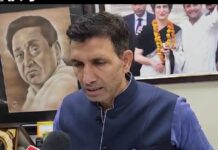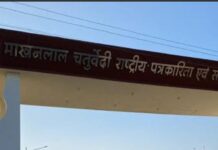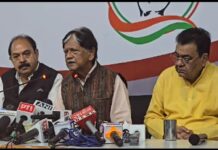Catalonia declared an independent republic on Friday. But nobody is sure how long it will last.
Within hours of Catalonia’s emotional vote, Spain’s prime minister announced he would dismantle the Catalan government, suspend its ministers, dissolve its upstart parliament, take over the regional police and call home any Catalan diplomats abroad.
The orders were effective immediately. In a Europe where change once took place at a glacial pace, this was the latest surprise in continent rocked by division and upset, populism and nationalism.
But how the central government will enforce its orders is the question everyone is asking. Will the national police carry out the new order? Or will the separatist leaders in Barcelona step aside to fight another day?
The Spanish Senate gave the central government in Madrid unprecedented and sweeping powers over Catalonia on Friday, sharply escalating the constitutional crisis.
Spain’s central government called for a clean slate and announced there would be regional elections in late December.
But how new elections will quiet yearnings for independence in Catalonia is unclear.
It is possible that more Catalans than ever now want to break away from heavy-handed Spain.
The no-nonsense announcement of the get-tough measures against Catalonia came just hours after the Catalan Parliament declared independence and the streets of Barcelona filled with celebrants, swilling cans of beer and sparking wine, waving Catalan flags and greeting each other in partial amazement.
Many wept openly, including those old enough to remember the dictatorship of Francisco Franco, whose death in 1975 freed Spain to chart its modern course.
Others came out to taunt the National Police sent by Madrid. There was celebration – but mixed with anxious jokes about when Spanish tanks would appear to take back the streets.
The day’s news came fast and furious.
In Spain on Friday there were two historic and opposing votes – one for independence, one to restore constitutional rule – that came in dueling sessions of parliaments in Barcelona and Madrid.
The central government easily won permission from the senate to take control of Catalonia. Meanwhile, secessionists in Catalonia faced bitter recriminations from Catalan foes who called the move for nationhood a coup and a historic blunder, a month after a referendum that backed a split from Spain.
The widening impasse has left scant middle ground in Spain for compromise and has spilled over to the European Union, whose leaders fear another internal crisis after major upheavals such as Britain’s exit from the bloc and the financial meltdown in Greece.
Immediately after the vote for independence, European Council President Donald Tusk tweeted: “For EU nothing changes. Spain remains our only interlocutor. I hope the Spanish government favours force of argument, not argument of force.”
Tusk’s remarks mirror fears in Catalonia that the Spanish government will employ riot police and harsh tactics to take back control of the region.
After the day’s votes, the Trump administration came down on the side of Madrid. “Catalonia is an integral part of Spain, and the United States supports the Spanish government’s constitutional measures to keep Spain strong and united,” the State Department said in a statement.
What happens now is unclear, though the newly declared republic will struggle to assert itself. Spain’s Constitutional Court will judge the unilateral assertion of independence illegal, and few countries in Europe have shown any willingness to recognize an independent Catalonia.
In the Catalan Parliament. there was plenty of evidence of another lopsided and clumsy vote. The final ballot was 70 to 10 in favor of the declaration of independence, but 55 deputies declined to vote, underlining the deep divisions.
“We have won the freedom to build a new country,” Catalonia’s regional vice president, Oriol Junqueras, tweeted.
Encarna Buitrago was with her friends in a flag-waving crowd in front of the parliament in Barcelona when independence was declared.
“Now we need to support our Catalan government. To go out to the streets! And now it’s up to the people,” said Buitrago, a pensioner. “If we are all together, we can do it.”
But quickly afterward, Spain’s Senate invoked the never-before-used Article 155 of Spain’s 1978 constitution, which grants the government full powers to take over Catalonia.
Spanish Prime Minister Mariano Rajoy told the Senate that his government had repeatedly tried to rein in the secessionists in Catalonia. He scoffed at Catalan President Carles Puigdemont’s offers of “dialogue” to end the impasse.
“The word dialogue is a lovely word. It creates good feelings,” Rajoy said. “But dialogue has two enemies: those who abuse, ignore and forget the laws, and those who only want to listen to themselves, who do not want to understand the other party.”
Rajoy urged the Senate to approve Article 155 “to prevent Catalonia from being abused.”
“Catalans must be protected from an intolerant minority that is awarding itself ownership of Catalonia, and is trying to subject all Catalans to the yoke of its own doctrine,” the prime minister said.
Other Spanish political parties also spoke out against Catalonia’s declaration.
Pedro Sanchez, leader of Spain’s Socialist party, said despite his disagreements with Rajoy’s government, “faced with the challenge of territorial integrity of Spain, there can be no nuance. Spain without Catalonia and vice versa is a mutilated Spain and Catalonia.”
In Barcelona, shouts of “Independence!” and “Democracy!” rose from an antechamber where hundreds of onlookers, including dozens of regional mayors, had gathered.
The eruption was answered by disdain from anti-secessionists in the chamber. A member of the Catalan Socialist Party, Daniel Fernandez, asked: “What is this? The storming of the Bastille?”
Pablo Iglesias, the leader of the left-wing national party Podemos, who defended Catalonia’s right to vote, added his voice to those criticizing Catalonia’s separatists.
“We are against the declaration of independence, not just because it is illegal, but because it is illegitimate,” he said. The Oct. 1 referendum was important “but doesn’t give them the right to declare independence,” Iglesias told journalists.
As for the invocation of Article 155, Iglesias said its coming implementation “will break one of the pillars of our living together.”
Carlos Carrizosa of the Citizens party decried the prospect of a declaration of independence, comparing it to a coup. He pointed at Puigdemont and said: “You, president, have been pro-independence your whole life. This whole plan was already laid out.”
“This movement is textbook populism, full of magical thinking, that reality has destroyed. You are willing to sacrifice all, for your pure fanaticism,” said Alejandro Fernandez, a Catalan lawmaker whose Popular Party is also running the central government.
More than 2 million people cast ballots earlier this month for independence, though the turnout for the referendum was around 43 percent of eligible voters, according to a count by the separatists.
During the vote, Spanish national police and Guardia Civil paramilitary officers used harsh tactics, in some cases beating voters with rubber batons and dragging people away from the ballot boxes.
The president of Spain’s Basque region, Inigo Urkullu, a key intermediary between Rajoy and Puigdemont, described the situation in Catalonia as “very worrying” and required “responsibility on the two sides.”















